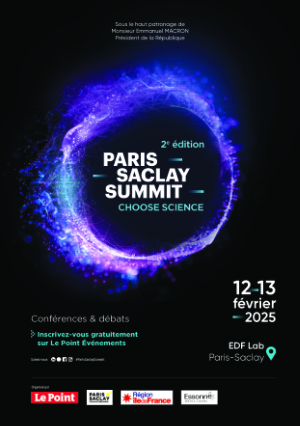Field investigation of an in-situ soil treatment solution for clay shrink-swell inhibition
| ABG-126457 | Thesis topic | |
| 2024-10-25 | Public funding alone (i.e. government, region, European, international organization research grant) |
- Civil engineering, construction and public works
- Ecology, environment
Topic description
The cycles of clay shrink-swell (CSS) are linked to the cycles of soil moisture fluctuations, themselves governed by alternating precipitation and drought periods. In France, 54% of constructions are located in areas characterised by a medium to high hazard of CSS. Structural damages to constructions caused by CSS are estimated at several hundred million euros annually, making CSS the second largest category for natural disaster compensation. In the context of climate change, the increasing occurrences of extreme meteorological events (in intensity and frequency) are likely to exacerbate the vulnerability of constructions to CSS. Managing the risk associated with CSS thus constitutes a considerable economic challenge.
This PhD subject is part of a research project funded by ADEME (French Agency for Ecological Transition), coordinated by ESTP (https://www.estp.fr/en) and ENPC (https://ecoledesponts.fr/en). The project aims to develop an in-situ soil treatment solution to inhibit the volume change of clayey soils during seasonal wetting-drying cycles. Various actions are planned: laboratory tests, field-scale experiments, and predictive numerical simulations to propose a treatment protocol considering local geological, geotechnical, and meteorological conditions.
The PhD proposal aims to develop a soil treatment solution to inhibit CSS in this context. The PhD candidate will perform field-scale experiments to investigate the influence of the soil treatment solution on the hydro-chemo-mechanical behaviour of natural expansive clays. The developed solution must meet scientific, environmental, economic, and practical requirements. In particular, the solution must significantly and durably inhibit heave and subsidence associated with soil moisture variations, be harmless for the environment, remain considerably less expensive than underpinning works, and be easy to implement.
Gloss salary: > 2300€/month
Laboratory: Laboratoire Navier (https://navier-lab.fr)
Duration: 36 months, from October 2025 to September 2028
Application: Submission via ABG. The selected candidates will be contacted later for an interview.
Starting date
Funding category
Funding further details
Presentation of host institution and host laboratory
École nationale des ponts et chaussées provides a very high-level education in general engineering.
In July 2024, the School became a member of the Institut Polytechnique de Paris, world-class Institute of science and technology encompassing 6 prestigious French engineering Schools: École Polytechnique, ENSTA Paris, École nationale des ponts et chaussées, ENSAE Paris, Télécom Paris, Télécom SudParis.
The Graduate School, underpinned by the excellence of its 12 research labs, develops Masters and PhD programs in mechanical and civil engineering, materials sciences, nuclear engineering, mathematics, information technology, environmental sciences, urban planning, transportation, economics, and sociology.
Through its subsidiaries or in its own right, it develops initial education and lifelong learning that are closely connected with different sectors of the economy.
The Navier Laboratory is a joint research unit of the Ecole Nationale des Ponts et Chaussées (ENPC), the Gustave Eiffel University and the National Center for Scientific Research (CNRS), located in the Cité Descartes in Marne-La Vallée. The staff (nearly 170 people) conduct research on mechanics and physics of materials, structures and geomaterials, and their applications to geotechnics, civil engineering, transport, geophysics and energy. Societal challenges concern sustainable construction, natural risks, environment and energy. In the development of mechanical and physical laws relating to these themes, the studies undertaken are both experimental and theoretical. They are based on a vast array of equipment, some of which are unique in their kind.
Website :
PhD title
Country where you obtained your PhD
Institution awarding doctoral degree
Candidate's profile
The candidate should have graduated in geotechnics, geomechanics, or environmental engineering, have demonstrated capabilities in laboratory work, and be interested in both scientific development and its engineering applications.
Vous avez déjà un compte ?
Nouvel utilisateur ?
Get ABG’s monthly newsletters including news, job offers, grants & fellowships and a selection of relevant events…
Discover our members
 SUEZ
SUEZ  ONERA - The French Aerospace Lab
ONERA - The French Aerospace Lab  Institut Sup'biotech de Paris
Institut Sup'biotech de Paris  Nokia Bell Labs France
Nokia Bell Labs France  MabDesign
MabDesign  CASDEN
CASDEN  CESI
CESI  Tecknowmetrix
Tecknowmetrix  MabDesign
MabDesign  Institut de Radioprotection et de Sureté Nucléaire - IRSN - Siège
Institut de Radioprotection et de Sureté Nucléaire - IRSN - Siège  Généthon
Généthon  Ifremer
Ifremer  PhDOOC
PhDOOC  Laboratoire National de Métrologie et d'Essais - LNE
Laboratoire National de Métrologie et d'Essais - LNE  ADEME
ADEME  Aérocentre, Pôle d'excellence régional
Aérocentre, Pôle d'excellence régional  TotalEnergies
TotalEnergies  Groupe AFNOR - Association française de normalisation
Groupe AFNOR - Association française de normalisation  ANRT
ANRT




